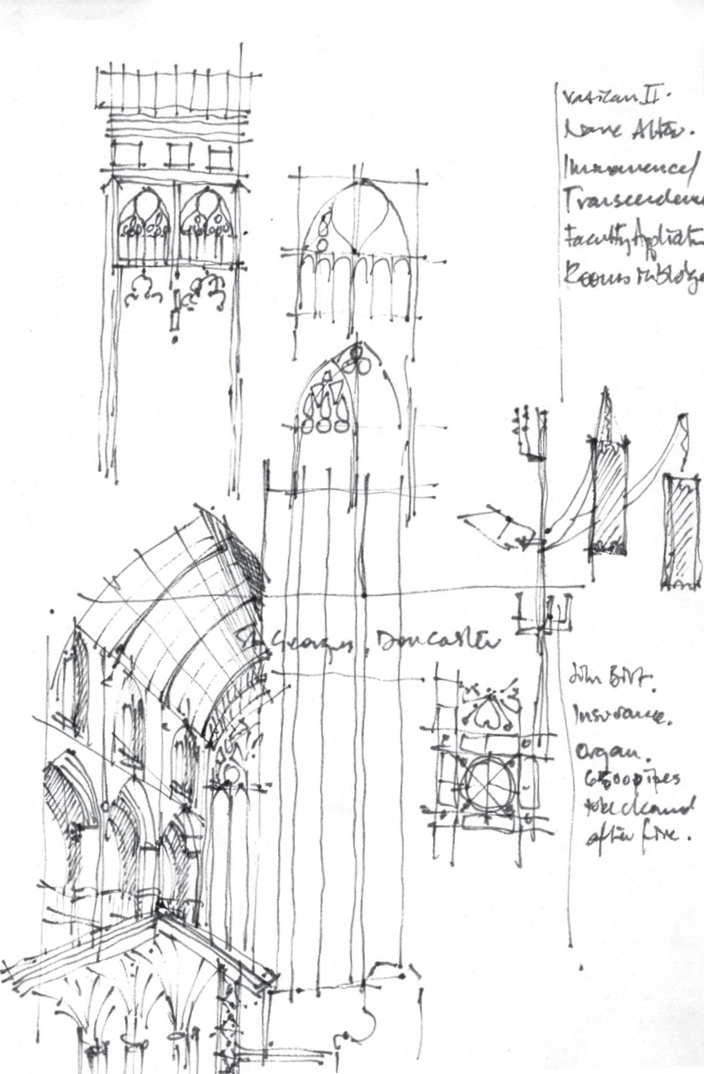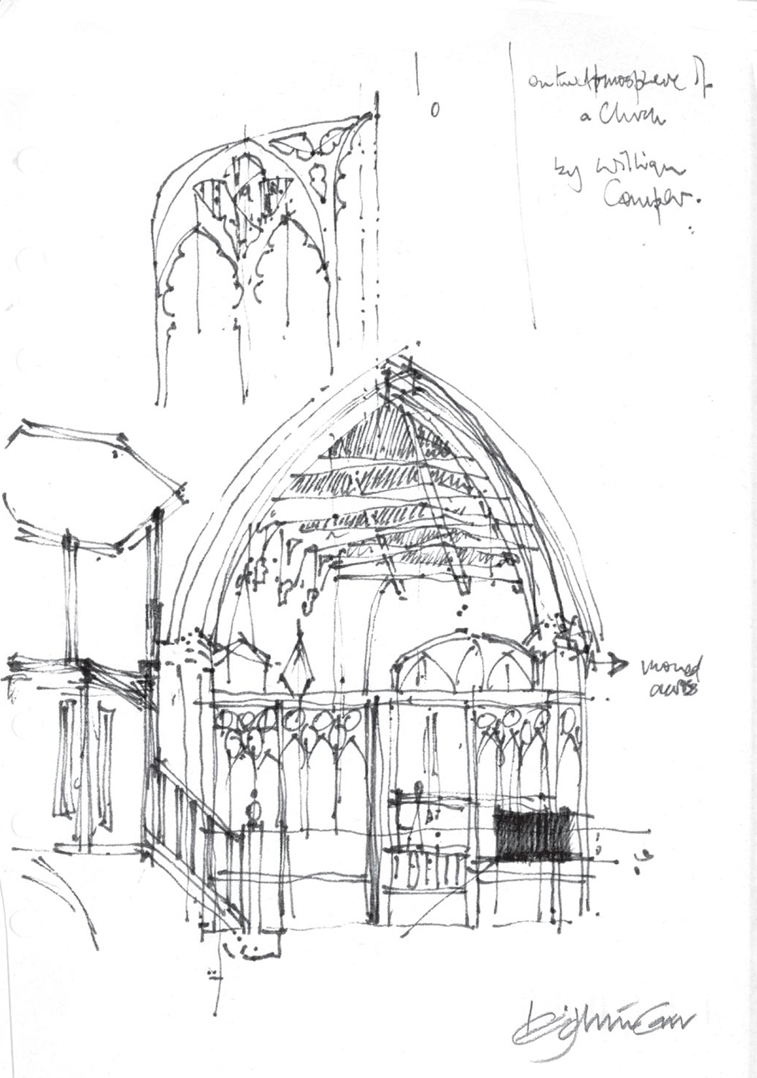Month: January 2014
Country Church
Reminder to the talented …
To whom much is given – much is required
William Temple and the Threshold of Faith
The average church member’s timidity in articulating their faith outside the church walls should be one of the greatest concerns of Western church leaders of the early 21st century church.\r\n\r\nToo dramatic?\r\n\r\nWell, not in the context of the decline of the established church in the west. Some notable observers of these things reckon that the church as we know it today will not exist in England for many more years.\r\n\r\nThe pressure felt by the average Christian to be more articulate is a product of multiple factors, not least of which is the fear of being ‘found out’ to be intellectually weak. But here are three simple ways we could start to remedy the situation.\r\n
- \r\n
- first, we could rely less on the didactic presentation of ‘truth’ from the pulpit as the sole means of developing theological thinking, as generally it doesn’t. Instead, increase the quantity and quality of conversation around theological themes among ordinary parishioners.
- second, as this conversation grows, encourage people of faith to recognise that those of us within the church are not as far apart as we presume from those outside, who may also wish to join the conversation.
- and third, we should realise that good quality conversation on theology, like good conversation in general, doesn’t rely on formulas or ‘magic bullets’ to score points. Rather, by its nature good conversation is an open minded way of finding an approach to the ‘threshold of faith’, as William Temple put it.
\r\n
\r\n
\r\n
\r\nMore fully the Archbishop says: \r\n\r\n“remember that [there are] many ways of approach [to faith] and that all the ways of approach lead us only to the threshold; for religious faith does not consist in supposing that there is a God; it consists in personal trust in God rising to personal fellowship with God”.\r\n\r\nAnd we do that, says the Archbishop, “by going to school not with the philosophers but with the saints
Hang out with … ?
… hang out with people better than you.
… therefore … the missing heart of atheism
Here are some things I’ve never heard:\r\n\r\n”I’m an atheist … therefore … I give 5% of my income to the local food bank to support the poor”\r\n\r\n”I’m an atheist … therefore … I am serving Syrian refugees”\r\n\r\nor\r\n\r\n”I’m an atheist … therefore … I visit elderly mentally infirm patients in local homes to offer them company”.\r\n\r\nI mention this because this week for the first time an asylum seeker was granted asylum in the UK on the basis that he was an atheist.\r\n\r\nIn a prominent broadsheet newspaper the comment on this case was written by a committed atheist. It was a provocative piece which descended into nitpicking (ok, so atheists and secularists are not the same) and arrogance (maybe people of faith have ‘concocted’ their deities; maybe not). And of course religious people can be crooks, as the article says in relation to education, but surely it’s unreasonable to offer that critique and ignore the fact that atheists can be equally unscrupulous or corrupt.\r\n\r\nIt was a cynical and bitter piece of playground bullying. It occurs to not only me that if people of faith used the kind of language atheists use in public then we would be in real trouble, and just once I’d like to hear a prominent atheist promote something other than disdain for people of different belief. I’d love to hear a different kind of language, not sneering at the values and trying to undermine the beliefs of ordinary people of faith. Not continually saying what they are against, but promoting the things that atheism stands for.\r\n\r\nDon’t believe in my God? Fine. My God might not be for you.\r\n\r\nBut isn’t it disappointing if all you can say is – to quote directly from the article -\r\n\r\n”I’m an atheist … therefore … I am raising my child to believe you {Muslim/Buddhist/Jewsish/Hindu/Christian/Sikh etc.} people are mad. Will that do?”\r\n\r\nWell, no it won’t.\r\n\r\nI’m proud that I live in a country that allows an atheist from another country to live here so they can have ‘freedom {from} religion’.\r\n\r\nAnd I hope that our new atheist citizen will offer the same courtesy to the people of faith that he finds himself living among now as that shown by the majority of ordinary people of faith in this country show to their neighbour.
John Sung’s guidance
How did John Sung, perhaps the most effective Chinese missionary in the C20, become quite so effective:\r\n\r\n“He was daily in prayer about the unknown future and seeking the revelation of God’s will for his life.”\r\n\r\n
Give time to creative thinking
Paul Olley said:\r\n\r\n“I made an international reputation by thinking twice each week,”\r\n\r\nHe outlined the components of successful generative (creative) thinking as these\r\n
- \r\n
- Time – give time to think
- Think – once or twice a week or month – not once a year
- Space – find space to think: go to a hotel for 2 hours each week
- Relax – it helps
- Topic – don’t pick a low grade or minor issue. Pick a big one. “if we had to do ‘X’ how would we do it?”
- Be focused – but not on anything. Be focused on opportunities and solutions. The object is not just to think but to decide
- Tools – find tools that work for you , well known ones perhaps, such as from Tony Buzan or Edward de Bono.
- Strategrams – draw strategic diagrams to summarise your thinking
- Intuition – use intuition rather than hard data
\r\n
\r\n
\r\n
\r\n
\r\n
\r\n
\r\n
\r\n
\r\n
\r\nPS if you didn’t link to the Edward de Bono video above … do it here! Edward de Bono
Doubt?
Never doubt in the dark what you learned in the light.
How many theologians does it take to turn the light on?
During the morning I read up on some philosophical/theological/moral puzzles. I like to be ahead of the game on apologetics (for which read – arguing with others).\r\n\r\nEvolution. Creation. Global Disasters.Sexuality and Gender. Truth. Evil and A Good God.\r\n\r\nWith these high thoughts in mind and a sudden realisation of a meeting looming I popped out to my local shopping high street to buy a printer ink cartridge for a last minute printing of a recent document (another Great Puzzle: why do cartridges and staplers run out at critical times?)\r\n\r\nIt was an emergency. I was in a desperate rush.\r\n\r\nBut even so, when I had parked the car and run to the high street, I stopped in my tracks.\r\n\r\nLiterally.\r\n\r\nStanding still in the middle of the pedestrianised shopping area.\r\n\r\nI stood and looked at the generally old and generally poor people passing by me who live and shop in my part of the city.\r\n\r\nAnd I couldn’t image that any one of the great puzzles that filled my mind today were of any concern to any of these people. And certainly not in the terms I was thinking of them.\r\n\r\nWhy have we lost the means to communicate the gospel effectively to the ordinary person?\r\n\r\nBased on this experience alone I would have to suggest it’s because we are misguidedly preparing to answer imaginary questions from an (equally, for most of us) imaginary well educated, chattering class of people; imaginary people whose images are formed in our heads I suspect by the voices on radios and televisions which have become the models for erudite religious argument. No wonder we can’t measure up!\r\n\r\nWilliam Temple put it this way: …\r\n
“if you do not want to trust God or to find a God to trust, then no amount of argument will lead you to it. The desire must be kindled in some other way than argument.”
\r\nA fuller extract of Archbishop Temple’s quote is worth reading …here..

